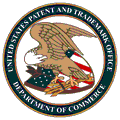
Summary: Why the pharmaceutical industry does not need patents and a reminder that Bill Gates invests heavily in these patents
A FEW days ago we promised to say something about pharmaceutical patents, which are some of the most evil and unethical patents out there (see Novartis for example [1, 2, 3, 4] as it is a top lobbyist for patents, just like Microsoft).
 In our previous explorations of the Gates Foundation we showed that it was a multi-billion dollar investor in pharmaceutical patents [1, 2, 3, 4, 5, 6, 7, 8]. There is an unethical issue here -- an issue which we wrote about in recent days [1, 2].
In our previous explorations of the Gates Foundation we showed that it was a multi-billion dollar investor in pharmaceutical patents [1, 2, 3, 4, 5, 6, 7, 8]. There is an unethical issue here -- an issue which we wrote about in recent days [1, 2].
Here is a long and interesting analysis of the Gates Foundation, aptly titled "rich out for the poor"
It concludes with:
I love it when everything comes together for the good of those who love the poor. This is the climate change I’d like to see enveloping the whole creative CGIAR.
Speaking of climate change, the Gates Foundation
denies global warming and so do other patent maximalists like Gene Quinn (a patent maximalist who lobbies very hard for software patents). He is
calling Global Warming a "Fraud" in order to defend patents which prevent the fight against pollution and other harms to the environment. Well, patents and ethics never mixed well.
As we promised at the start, we wish to also rebut the perception that patents can save lives. It's the propaganda used by the big pharmaceutical companies and it is contradicted by one of the first answers in
the following good talk. [thanks to our reader
Fewa for pointing this out]
The claim that patents are vital for the pharmaceutical industry ignores the fact that almost all the research is publicly funded and from the overall income only about 15% is diverted towards research and discovery. About 40% goes towards manufacturing and the rest is profit and marketing (sometimes telling people there is something wrong with them so that they buy drugs they do not require and may even have nasty side effects and unknown long-term ramifications). Research prioritises proftable products like those which rich people will buy (e.g. creams against wrinkles), as opposed to drugs that save lives of poor people who can hadly pay and thus are not in the shareholders' interest.
One of our readers, The Mad Hatter, added the following two references yesterday:
1.
Big Pharma’s Crime Spree
Big Pharma’s Crime Spree
Rather than having a deterrent effect, the number of Big Pharma high profile criminal settlements is increasing and the settlements are getting bigger. BIG PHARMA’S CRIME SPREE is a riveting report by David Evans in the current issue of Bloomberg Markets Magazine relying on recent criminal legal settlements. It leaves no doubt about the fact that Big Pharma’s business practices are defined by criminal activities.
2.
Possible MS Breakthrough Neglected By American Media
Possible MS [Multiple Sclerosis] Breakthrough Neglected By American Media
Folks who suffer from Multiple Sclerosis are not really a rowdy bunch. Activism and outrage are hard to muster for the chronically fatigued. But since Thanksgiving, people with MS and their loved ones have gone all ACT-UP 2.0.
That is, the past few weeks have seen a surge in online activity within the MS community - as bloggers, vloggers and forum posters are calling one another to action in response to the lack of response to what many perceive to the scientific breakthrough they've been waiting for.
There are even more heinous crimes from this whole industry. Apart from experimentation with poor populations (drug testing in Africa for example
*), just a few weeks ago there were reports which revealed that the big pharmaceutical companies paid makers of generic drugs to close shop and stop competing so that affordable drugs are taken off the market shelves (and thus kill an already-impoverished population). Sounds like Microsoft, doesn't it? Nobel Prize-winning economist Joseph Stiglitz
made it rather clear that this is a common problem, not the exception.
There are many reasons to argue that the pharmaceutical industry does not need patents. It is trying to defend and sometimes shore up an old business model, whereas others in this field have already moved on to paradigms of sharing (see
the references here). It is less wasteful, so progress is more rapid and the customer/patient benefits the most.
⬆
___
* To give
an extreme example, the United States used the population of south Vietnam as a "control group" after resorting to chemical warfare.
“Gates has created a huge blood-buying operation that only cares about money, not about people.”
--AIDS organisation manager, December 2009 (New York Times)

 In our previous explorations of the Gates Foundation we showed that it was a multi-billion dollar investor in pharmaceutical patents [1, 2, 3, 4, 5, 6, 7, 8]. There is an unethical issue here -- an issue which we wrote about in recent days [1, 2].
In our previous explorations of the Gates Foundation we showed that it was a multi-billion dollar investor in pharmaceutical patents [1, 2, 3, 4, 5, 6, 7, 8]. There is an unethical issue here -- an issue which we wrote about in recent days [1, 2].